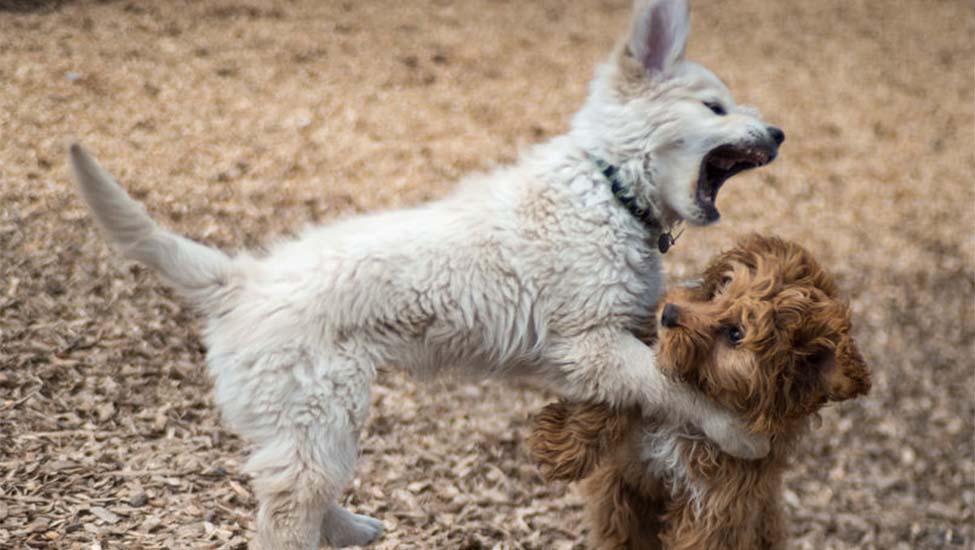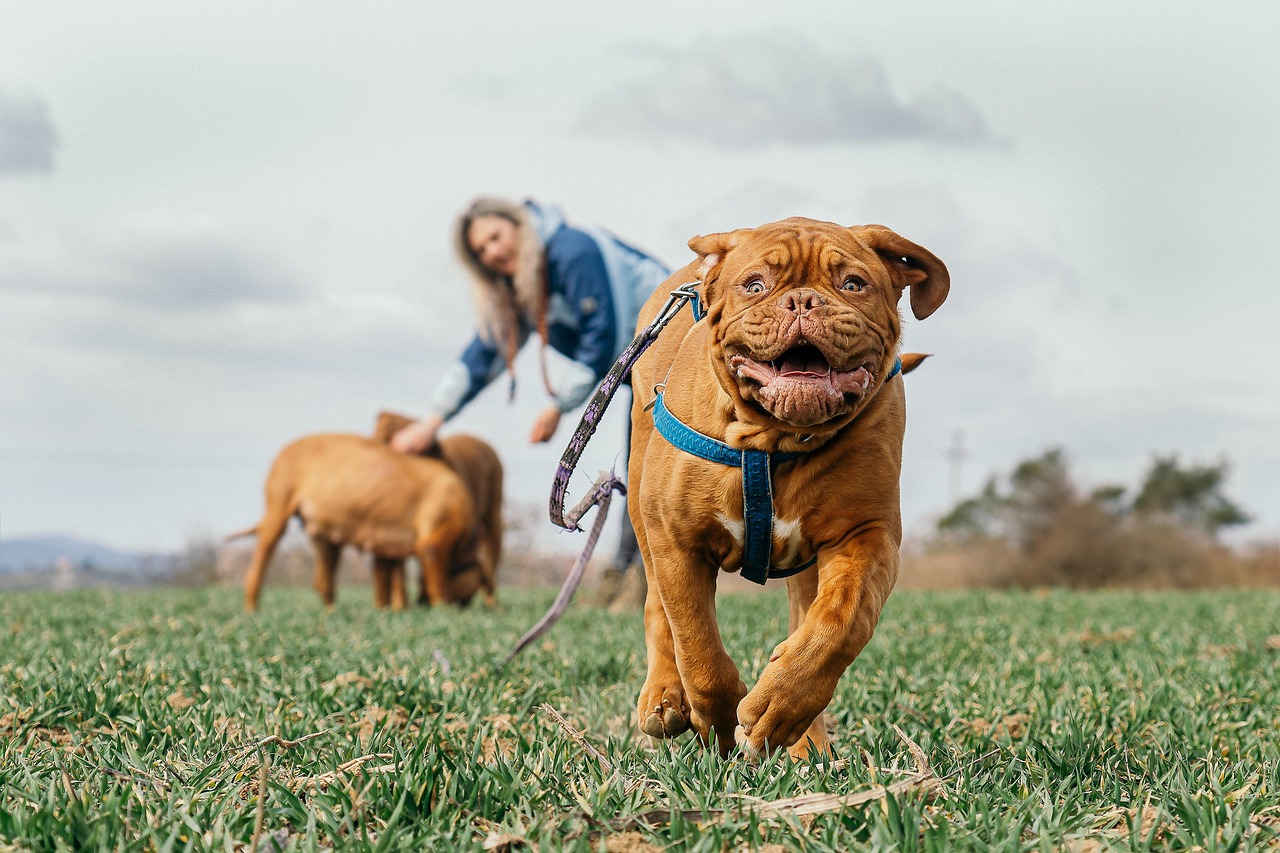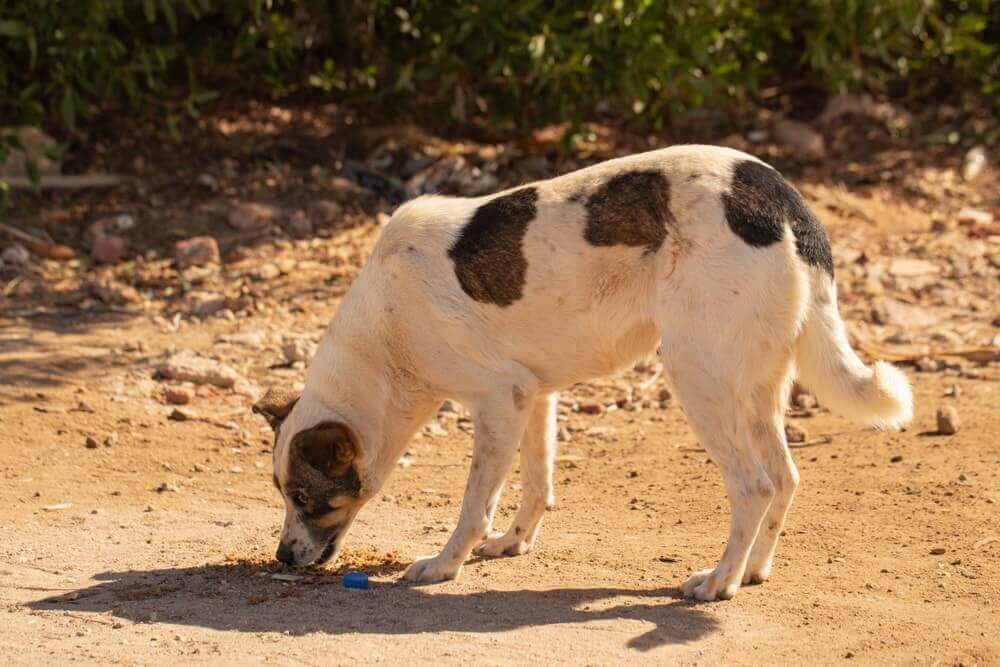Hey Ollie blog readers! We’re offering you an exclusive 60% OFF your starter box! Try now!
A few weeks ago, a dog bit my 7-year-old cocker spaniel right below her nose as I was walking my daughters to school in the suburbs of Chicago. After screaming and crying and yelling at the owner, who said that “her dog doesn’t bite,” despite the blood running down my poor pooch’s face, I verified that her dog had his shots, and I ran home to put Vaseline over the bite and essentially did everything wrong you could do in this situation (didn’t even call the vet, nor did I wash the wound).
According to the Centers for Disease Control and Prevention, there are about four and a half million dog bites annually, and nearly one fourth of them become infected. That’s more than one million infections, and about 4,000,000 humans who have freaked out over it, just like me. Just in case this happens to your dog, don’t follow my lead—instead, follow the advice of Sarah Nold, Seattle-based veterinarian at Trupanion, who provided up with step-by-step no-stress instructions post-bite.
Step One: Remain Calm (as Possible)
Getting excited or agitated will make the situation worse (as I found out!) The best thing you can do is to stay still and quiet so you don’t scare either dog and get them more upset than they actually are. Avoiding direct eye contact with the dog who bit you and your dog is also helpful because you need to lessen the intensity of the situation. In the extreme case that the attacking dog knocks you over, roll into a ball and protect your ears and neck.
Step Two: Get the Dog’s Records
Assuming the dog’s owner is present, getting proof of rabies vaccination as well as their contact information is essential, Nold says. If your dog was bitten and is up to date on his rabies vaccine, it’s less important to know the rabies status of the other dog, Nold says. “However, if a person was bitten, the rabies vaccine status of the other dog becomes very important,” she says. “In addition, in most states, the infected dog that has bitten a person must undergo a mandatory 10-day quarantine.”
Step Three: Call the Authorities
If the dog was a stray, contact animal control. They can check to see if the dog has a microchip and can be led back to an owner, who can tell you if the dog had a rabies shot. Regardless of the rabies shot, animal control can get the dog off the street, which is essential. If the dog who bit has an owner, they’re responsible for any vet bill (or emergency room bill), so it’s best to get the police involved so everything is officially documented. Calling the cops may seem extreme, but it’s the best way to ensure that your vet bills are covered.
Step Five: Go to Your Vet
“You should have your dog examined by a veterinarian ASAP—sometimes bite wounds are more severe than they initially appear,” Nold says. Plus, a dog’s mouth is filled with bacteria, so any bite that punctures the skin will introduce bacteria under the skin’s surface. This could result in a tissue infection, even if the bite wound appears to be minor. Most likely, your dog will be prescribed antibiotics for small bites—and sutures or more extensive treatment for larger lacerations.
Step Six: Care for Your Pup Post-Bite
If you can’t get to the vet immediately, clear superficial scrapes and abrasions with mild soap and warm water (but all bleeding wounds or puncture wounds need to be seen by a vet ASAP). After patting dry with a clean cloth, you can apply a triple antibiotic ointment topically, Nold says. Monitor closely for signs of infection such as redness or discharge, and contact your vet immediately if any occurs. You should try (as best as you can) to limit licking or chewing of the wounds by your dog until they’re healed. “Talk to your dog in a calm, soothing tone, and be careful about petting or touching them, especially near the wound, as pain can make them do things they wouldn’t otherwise do, such as bite you,” Nold says.
You may also have to help your pup deal with his anxiety after the attack, especially if you return to the same spot where he got the bite. “If their anxiety is only mild, then positive reinforcement with a favorite treat or toy can go a long way,” says Nold, who suggests that humans stay calm as well, as dogs can pick up on your own anxiety. “If their anxiety is severe, you should consider working with a veterinary behavioral specialist, as it may require a combination of medication and behavioral modification.”
The Ollie blog is devoted to helping pet parents lead healthier lives with their pups. If you want to learn more about our fresh, human-grade food, check out MyOllie.com.
Tagged As:

The nutrition your dog needs,
the food they want.

Enjoying our articles? Subscribe our Newsletters and get new articles directly to your inbox
You might also like
23 September 2025
6 MINS READ
Back to School: Training Your Dog at Any Age
As we hit back-to-school season rolls around, it’s not just kids who benefit from sharpening their skills and learning something new—our dogs can, too! Training isn’t limited to puppies or p…
by Ollie Pets
23 September 2025
7 MINS READ
Lace Up and Leash Up: A Beginner’s Guide to Running with Your Dog
Running is one of the simplest ways to stay active, and it’s even better with a canine companion. Not only does running with your dog keep you both in great shape, it also strengthens your bond …
by Ollie Pets
18 September 2025
8 MINS READ
Why Do Dogs Eat Rocks? Common Reasons & How To Stop It
Why do dogs eat rocks and is it dangerous? Learn what causes this behavior, what to watch for, and how to stop your dog or puppy from eating rocks safely.
by Gabby Slome







